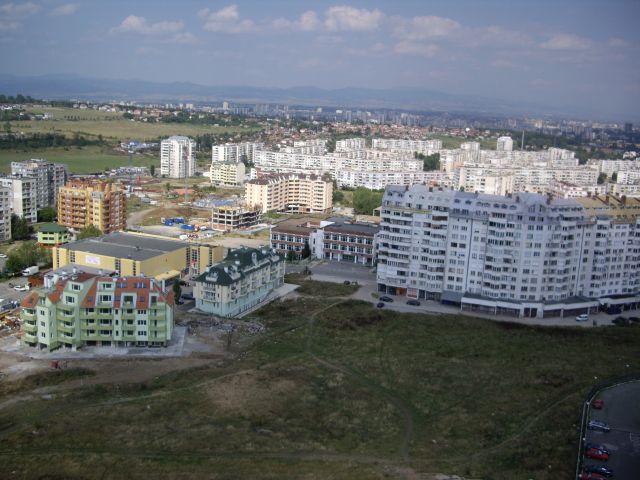Real Estate Property Investment Series – Focus Bulgaria 2007
- on 04.16.08
- Bulgaria property news and articles
- No Comments
Bulgaria will become a fully fledged member of the European Union on the 1st of January 2007 and this will have a dramatic impact not only on the residential property market in Bulgaria but also on the commercial marketplace with the retail, warehousing and logistics sectors especially affording investors plenty of diversity when it comes to developing a profitable property portfolio.
To put it simply, 2007 could well be the year when Bulgaria stops emerging as a nation and it finally arrives as a top destination with strong real estate investment opportunity supported by a local society growing in affluence and backed up by a strong tourism market and fledgling international expatriate and retiree demand.
Prior to the very recent announcement that Bulgaria really would join the European Union in 2007, those who bought property in Bulgaria were seen as speculators banking on the nation being accepted as a fully paid up member. These investors naturally took a great deal of profit from the market when the announcement came through. Subsequently there have been many media reports that there is no more room for profits to be made but that is an incredibly short sighted view to take! Sure, the speculators have been there, done that and derived double digit returns on investment each year to date but going forward there are many fundamental factors underpinning the ongoing profitability of property in Bulgaria.
For example, with EU entry comes massive investment and the ability for companies and commercial operations from across Europe to set up operations in Bulgaria or to begin trading more intensely with Bulgaria. One of the main property market sectors set to expand significantly as a result is the retail sector – a company like Technopolis Bulgaria is perfect to demonstrate the direction many retailers are planning on taking in 2007. Technopolis Bulgaria is a company part German and part Bulgarian owned that is already dominant in its consumer electronics market sector and which already owns 11 mega stores across the country but which, in 2007, has plans to begin building hypermarkets. Not only this, they have further plans to expand across Bulgarias borders and they are just one in an incredibly long line of retailers with plans in place to construct logistics and warehousing in Sofia as well in 2007.
Retailers demand for land is going to go head to head with residential developers demand for land in the main commercial centers and resorts and this will force land prices up which will inflate the prices of properties for salebuyers need to get in ahead of this price push and 2007 is the year when they need to move quickly.
There are further factors that will inflate house prices in Bulgaria from 2007 onwards with EU entry comes a requirement to adhere to EU rules and regulations and these rules and regulations dont come cheap! Constructors will need to upgrade materials used and also safety standards in place. Furthermore Bulgarian labour can now begin demanding equal rates of pay with their EU counterparts and on top of this, commodities such as electricity are set to increase in 2007. The National Construction Federation has estimated that in 2007 alone 5% will be added to the price of construction because of all of these factors.
This will affect those who come to the market late and anyone hoping to tap into a society growing in affluence and demanding more and better accommodation as well as a tourism market that is rapidly expanding need to move quickly in Bulgaria if they want to profit fully. It is estimated by many experts in the Bulgarian property market that there is a window of maximum opportunity currently that will last until 2010 after which point the Bulgarian property market will have met demand with supply, property prices will meet affordability and short term strong gains will be far less achievable.
Finally, changes to the Bulgarian constitution to allow straightforward foreign ownership of real estate have been made but not yet enacted and while this remains the case there will exist in many peoples minds additional risk or unsatisfactory levels of administrative hassle associated with buying property in Bulgaria which one has to do via a limited company structure. This will keep prices competitive until the constitutional changes become law which is estimated to happen somewhere between 2010 and 2014. This means that those who commit now can buy in ahead of a potential boom in property transactions which will most likely occur when it becomes simple to buy and own land and property in Bulgaria.
Submitted by: Rhiannon Williamson

Leave a Reply
You must be logged in to post a comment.